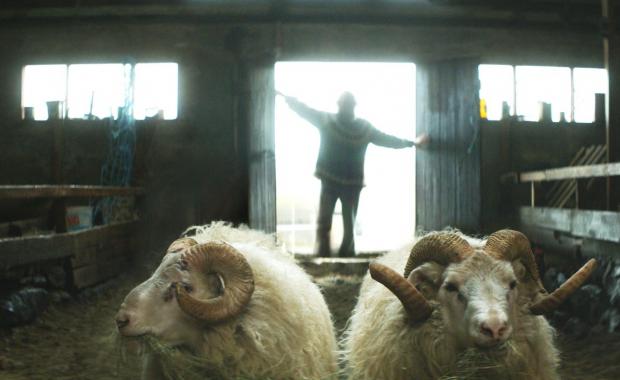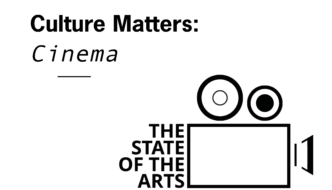Review: Rams from Icelandic writer and director Grímur Hákonarson
February 17, 2016

Rams photo by Hrútar
Recipient of the ‘Un Certain Regard’ award at least year’s Cannes Film Festival and winner of audience awards at numerous festivals, Grímur Hákonarson’s film tells the story of two brothers – Gummi (Sigurður Sigurjónsson) and Kiddi (Theodór Júlíusson) – who are sheep farmers occupying neighbouring farms in a remote Icelandic valley. Despite being charged with taking care of the family’s breed, passed down through generations, the brothers have not spoken to each other in forty years. When Gummi defeats Kiddi at the valley’s annual ovine best in show contest, the hard-drinking Kiddi decides to hatch his revenge. Kiddi’s decision sets in motion a chain of events which will have major ramifications for the denizens of the valley and the brothers’ fractured relationship.
The immediate point of reference for Rams is Michelangelo Frammartino’s sublime meditation on time and loss Le Quattro Volte (2010), but it shares more in common with another ‘Un Certain Regard’ winner, Ruben Östlund’s Force Majeure (2014). Like Östlund’s film, Rams is a distinctly Nordic blend of tragicomic distance, lyricism and a vivid sense of milieu, portraying characters grappling with the demands of a circumscribed world. Your enjoyment of Rams will depend on the degree to which you appreciate the deadpan romanticism of Aki Kaurismäki or the bittersweet musings of Roy Andersson; it operates at a level of humour so understated and culturally specific that it may alienate those seeking a straight comedy; but persevere and you fall into is cadences. For those in search of the zany or wilfully crass, may I point you in the direction of Zoolander 2 and Deadpool; but if you enjoy a keenly observed character piece then Rams will satisfy.
But to reduce Rams to a set of reference points is to do it a disservice, as it has a charm all of its own. Hákonarson is to be commended for the empathy with which he approaches his subjects; the potential is there for Rams to descend into farce or succumb to whimsy, but his screenplay never loses sight of its humanity in pursuit of laughs, and the funny moments are all the better for existing within a humanistic framework. The screenplay traces the brothers’ history with tremendous economy; beyond a few lines of dialogue, the weight of the back story is articulated in action and gesture, unfolding in a series of telling vignettes which provide incremental insights into the brothers’ poisonous dynamic.
The success of the story is aided in no small part by two exemplary central performances. Sigurjónsson and Júlíusson deliver raw, honest, naturalistic performances that are genuinely charming and touching; we never for a second question the depth of their antipathy and the inextricable blood bonds which keep them trapped in the inhospitable valley, beautifully captured by cinematographer Sturla Brandth Grøvlen. The story has an almost Shakespearian quality, but the stakes are so low it lends the brothers’ machinations a comic dimension. It may occasionally stray into the twee – the sheep are given credits – but Rams is at its heart a subtle and engaging piece of social realism imbued with deft symbolism. Rams captures with an incisive eye the heartbreaking drama of the miniscule.
Follow Daniel Palmer on twitter @mrdmpalmer.
Filed under: Film, TV & Tech
Tagged with: film, hákonarson, Rams, Sheffield, Sigurður Sigurjónsson, Theodór Júlíusson



Comments